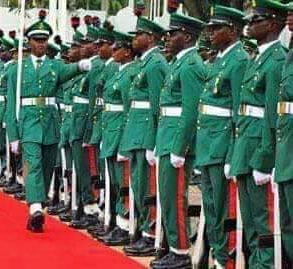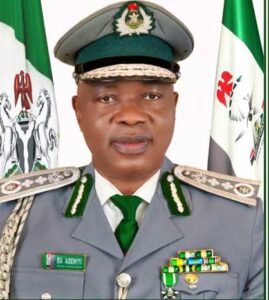
Nigeria would need a whopping 2 billion dollars (about N826 billion) annually to fund its Armed Forces to effectively combat the daunting challenges of insecurity it presently faces, the Defence Headquarters said in Abuja on Monday.
This disclosure came to the fore on Monday just it was revealed that some members of the Armed Forces currently engaged in the fight against insurgency and other criminal act are lobbying to be redeployed from the area where they are posted as a result of poor welfare.
Speaking at a public hearing on a bill to establish a the Armed Forces Special Trust Fund organized by the House of Representatives Committee on Defence, Director of Production, Defence Headquarters, Air Vice Marshal M. A. Yakubu, who spoke at a public hearing on the Armed Forces Support Trust Fund Bill organized by the House of Representatives Committee on Defence said even the sources of funding specified in the Bill would be inadequate to tackle the problem.
The Bill seeks alternative sources of funding for the Armed Forces to improve the software, hardware and training.
Yakubu said the projection for funding in the Bill is estimated at about N100 billion per year.
When established, the Support Trust Fund is expected to draw funds from one percent of the total money accruing to the Federation Account; 0.5 percent of the profit made from the investment of the National Sovereign Wealth Fund (NSWF) by the Nigerian Sovereign Investment, one percent of Value Added Tax (VAT) remitted to the Consolidated Revenue Fund (CRF) as well as any take-off grant and special intervention fund as may be provided by the Federal Government, states and local governments of the Federation.
It will also draw funds from one percent of the air ticket contract, charter and cargo sales charge to be collected by the airlines and paid to the support fund; Aids, grant and all assistance from international agencies, nongovernmental organizations and the private sectors; and Money derived from investments made by the Support Fund.
But AVM Yakubu said this will still be inadequate, saying “I have been a defence attaché in the United States of America from 2014 to 2017. I have been a Director of Procurement at the headquarters of the Nigerian Airforce for another two years.
“I have been a chief of logistics also at the headquarters Nigerian Airforce for another two years. So I am fully conversant with what it takes to run the affairs of a fighting Airforce.
“I also understand the limitations we have in Nigeria and what it should have been. I want you to understand how large is this problem we are trying to address before I make my point.
In his presentation, Director General Defence Research and Development Bureau, Air Vice Marshall U. P. Uzezi, urged that research and development be taken more seriously so that required military hardware can be produced locally.
His words, “This bill is needed at this point in time in the history of our country, bearing in mind the national security challenges we are facing. I just want to raise two points on this draft.
“The bill talks about local production and I was thinking to myself how we are going to achieve this local production without adequate research being done to encourage local production. I did not find one. Of course it is implied in the bill, but not explicitly capture. I thought that R and D should be included as one of these priorities in this Bill.
“There are many research institutes in the country, but they have suffered and they have not been able to achieve much because of this singular act of inadequate funding”
A member of the House of Representatives Committee on Defence, Hon Princess Miriam Odinaka Ohuoha, urged that the Bill should also accommodate better welfare for men and officers of the Armed Forces.
She said her constituents who are in the frontlines have been calling her to help them get deployed because of the issue of their welfare.
She said “does the trust fund take care of the welfare of men and officers of the Armed Force? I am aware that in most cases, people in the front line are begging to be redeployed.
“As a representative of the people, I have a countless number of my constituents who call and write to me and say they have been posted to so and so place and have been there for long and that I should use my good office to apply for them to be redeployed.
“It is not just about the zeal to serve your country. But the fear of what happens to your family when you die even in the line of duty. How can we tinker with the bill to at least accommodate the welfare of these people,” she said.
By Tony Akowe












